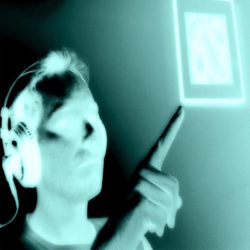 While I was jogging this morning a few thoughts floated through my mind related to the notion of radical acceptance. Whenever I start thinking about such things, it’s all too easy to get stuck in semantics, allowing the rules of grammar and the limitations of linear thinking to distract me from the heart of the matter. For instance, I often describe the state of radical acceptance as one characterized by a “letting things happen of their own accord” as opposed to “me making things happen or me resisting things as a willful agent.” Obviously, this sets up a dichotomy between me, on the one hand, and experience, on the other. Once the dichotomy is set up, I too often get lost in a confused attempt to philosophically reconcile to the two poles, forgetting that the dividing line between the two is non-existent, except as way of perceiving experience from a particular perspective, namely the perspective of ego identification, which implicitly entails a certain degree of disidentification with non-egoic dimensions of experience. From the perspective of ego identification, I have experiences; experiences happen to me.
While I was jogging this morning a few thoughts floated through my mind related to the notion of radical acceptance. Whenever I start thinking about such things, it’s all too easy to get stuck in semantics, allowing the rules of grammar and the limitations of linear thinking to distract me from the heart of the matter. For instance, I often describe the state of radical acceptance as one characterized by a “letting things happen of their own accord” as opposed to “me making things happen or me resisting things as a willful agent.” Obviously, this sets up a dichotomy between me, on the one hand, and experience, on the other. Once the dichotomy is set up, I too often get lost in a confused attempt to philosophically reconcile to the two poles, forgetting that the dividing line between the two is non-existent, except as way of perceiving experience from a particular perspective, namely the perspective of ego identification, which implicitly entails a certain degree of disidentification with non-egoic dimensions of experience. From the perspective of ego identification, I have experiences; experiences happen to me.
When I move into a state of radical acceptance, I’m moving from a state of relative non-acceptance where I’m fighting against life, trying to deny what is, hoping to somehow transform it into what I want it to be. So, at first, the shift to acceptance feels as if there is an I who is allowing experience or life to happen without any interference or resistance from me. This dividing line between myself and the flow of life experience begins to blur as I move deeper into a state of acceptance, eventually bringing me to state of being where such distinctions no longer hold sway, no longer make sense, and no longer characterize how I feel. The “problem” of ego identification isn’t really solved. It just disappears (temporarily). The differentiation between myself and life ceases to seem relevant, if only for a moment.
Consider the following reflections (Yes, this is really what I thought about during my jog!):
You need to find your way to a soccer field that is located on the border of two towns. You pull out your trusty road map and make your way there. The lines on the map are useful for finding your way to the field, but once you get there, they are no longer relevant to your next objective, i.e. to play a game of soccer with your friends. The town line cutting the field in half helped you get there, but once you get onto the field it disappears from your mind, and now the only relevant lines are the ones marking the field. After the game, you might decide to have a picnic on the field, or maybe later that evening an outdoor concert will be held there. At that point, the markings on the field also become irrelevant. They, like the lines on the map, were useful conventions in a specific context, served a function in pursuit of a specific purpose, but during the concert they lose all relevance. I think ego identification is like lines on a map or lines on a field. The distinction between me and my experience has relevance and reality only from the perspective of ego identification, and that perspective is merely a convention, like lines on a map or a field, that is useful for certain objectives and not useful for others.
The problem with being stuck in a state of ego identification is that you get stuck with the sense of separation and disconnection from life that goes hand in hand with the state. Differentiating and separating out a me from the rest of life (not-me) is the action of attention that defines and generates the sense of being a self. When we are engaged in purposeful activities, when we’re “getting things done,” it’s probably useful to set down some imaginary lines to create an image of oneself as distinct from the flow of life. But when the job is done, the destination reached, it just confuses matters to keep generating those imaginary lines, as it would be confusing to play soccer on a field marked with lines not relevant to the rules of soccer — i.e. football yard markers, town borders, and/or concert rows. Radical acceptance, like other deployments of attention that might be considered meditative, can be strengthened through practice to the point where it becomes an enduring pattern, a healthy habit, an available perspective through which we can experience life in its seamless glory.
My intention as I began my jog this morning? To stay aware of bodily sensations and to avoid getting lost in thought! And just in case anybody’s wondering: Normally I get lost in far more mundane mental distractions, like fantasies of winning Olympic medals or snippets of random pop songs from the 80s.

